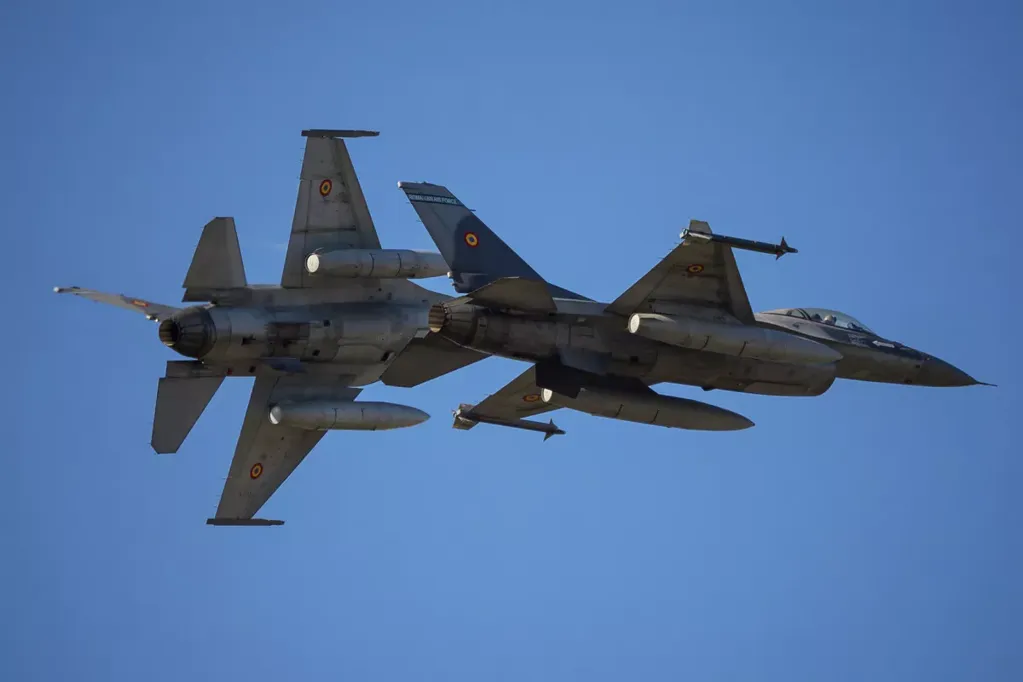Russian drone activity spilling into NATO territory is "unacceptable and reckless," Romania's foreign minister has said, after authorities in the country said one of Moscow's uncrewed aerial vehicles (UAV) violated its airspace.
"Romania condemns Russia's behavior and takes the necessary measures to protect its sovereignty and security," Oana Toiu said in a statement published on social media late on Saturday.
Newsweek has reached out to the Russian Defense Ministry via email for comment.
Why It Matters
On Wednesday, Poland said its military, supported by other NATO countries, had shot down three of the nearly 20 Russian drones that crossed over into its airspace. Moscow denied it had targeted the NATO country.
Russian drones have crossed into NATO territory a number of times since the start of full-scale war in Ukraine in February 2022. The drones straying into NATO territory had not been deemed intentional attacks, but the incidents stoke the fire of tensions between the alliance and the Kremlin, at its worst point in decades.
What To Know
Two F-16 fighter jets tracked a Russian drone close to the Danube River until it left Romanian airspace "without causing any damage or casualties" nearly an hour later, Toiu said.
Romania's Defense Ministry said the aircraft had detected the drone at 6:23 p.m. local time and tracked it to roughly 20 kilometers (12.5 miles) from the village of Chilia Veche, which sits directly across the river from Ukraine. The drone then disappeared from the country's radar, Bucharest said.
The Danube River marks the border between Romania and southwestern Ukraine, which frequently comes under Russian attack.
Two German Eurofighter aircraft "were also ready in the air monitoring the situation," the minister said. Five German fighter jets are currently stationed in Romania for a rotation of NATO's mission to protect the alliance's airspace.
"People in Romania were never in danger, but such actions by Russia are unacceptable and reckless," Toiu said, adding Bucharest was in "constant contact" with the European Union and NATO.
Polish authorities separately said on Sunday that they had not confirmed any violations of the country's airspace after fighter jets were scrambled on Saturday afternoon.
Poland's military said earlier in the weekend it had put its ground-based air defense and radar systems on the "highest state of readiness" after Russia launched drone strikes on regions of Ukraine bordering Poland. The weather could have tricked the sensors, Warsaw's operational command said.
Ukraine's air force said early on Saturday that Moscow had launched 164 drones of various types, including one-way strike drones. The Ukrainian military later warned a Russian drone was moving west in the Volyn region, which sits east of Poland.
"This is a warning not only to Poland, but to all of Europe," Ukrainian President Volodymyr Zelensky said late on Saturday. "Russian drones can travel much greater distances."
On Friday, NATO launched what it dubbed "Eastern Sentry," designed to bolster the alliance's flank on Russia's border after Moscow's drone incursions into Poland. Denmark will put forward two F-16 fighter jets and an anti-air warfare frigate, while France will contribute three Rafale jets and Germany four Eurofighters, the alliance said in a press release.
The initiative will "make clear that, as a defensive alliance, we are always ready to defend," NATO chief Mark Rutte said, adding Russian UAVs crossing into Poland were "not an isolated incident."
"While a full assessment of the incident is ongoing, NATO is not waiting, we are acting," said NATO's Supreme Allied Commander Europe, General Alexus Grynkewich.
Toiu said the European Union should "rapidly" adopt a planned 19th sanctions package against Russia and employ "the full spectrum of measures" of Eastern Sentry.
U.S. President Donald Trump, who has resisted punishing Russia with sanctions, despite his administration's attempts to broker a peace deal in Ukraine, said on Saturday he was "ready" to place "major" sanctions on Russia when all NATO countries agree to "do the same thing" and stop buying oil from Russia.
"I am ready to 'go' when you are," Trump said in a post to his Truth Social platform.
Turkey, a NATO member, is the third-largest importer of Russian fossil fuels, according to the Centre for Research on Energy and Clean Air. The European Union, which shares many of its members with NATO, is the fourth-largest buyer of fossil fuels from Moscow, much of which is liquefied natural gas, according to the research organization.
What People Are Saying
Oana Toiu, Romania's foreign minister, said on Saturday: "We need to effectively increase the cost of Russia's blatantly illegal and provocative actions."
What Happens Next
It is not clear if further Russian drones will cross over into alliance territory, or whether the U.S. will impose its threatened sanctions on Moscow.
